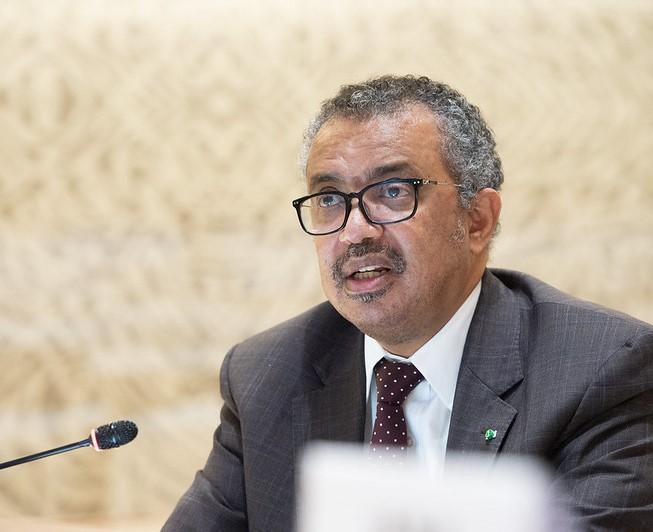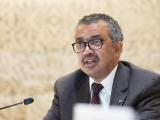The head of the World Health Organization (WHO) today announced that he will convene an emergency committee to assess the threat from a complex mpox situation in Africa that has seen the spread of a novel clade beyond the Democratic Republic of Congo (DRC) and outbreaks in multiple countries involving two earlier clades.
In announcing the step at a media briefing, WHO Director-General Tedros Adhanom Ghebreyesus, PhD, said he made the decision based on spread of a novel mpox clade outside the DRC and the potential for spread to other African nations and the rest of the world. He said the outside expert group will meet as soon as possible. Emergency committees typically make recommendations and assess whether the situation warrants a public health emergency of international concern (PHEIC).
The decision over whether to recommend a PHEIC hinges on whether the threat is new, if the disease is crossing international borders, and if international collaboration is needed to control the spread.
Tedros said the WHO has been working with affected countries, Africa Centres for Disease Control and Prevention (Africa CDC), and nongovernmental groups to better understand the drivers of the outbreaks. "Stopping transmission will require a comprehensive response, with communities at the center," he said.
Novel clade spread to DRC neighbors
The DRC has been experiencing a severe outbreak since 2022, with more than 14,000 cases reported this year, 511 of them fatal, according to the WHO. The outbreak in the eastern DRC, originally centered in South Kivu and now in North Kivu provinces, is due to a novel clade 1b virus that is thought to cause more severe disease than other clades.
As earlier feared, four neighboring countries that haven't reported mpox cases before have recently reported 50 confirmed illnesses, along with other suspected cases. The clade 1b virus has now been confirmed in Kenya, Rwanda, and Uganda, and the clade in Burundi is still under investigation.
At the same time, the mpox clade 1a virus—endemic in some African countries—is fueling outbreaks in other parts of the DRC, as well as the Central African Republic and the Republic of Congo. And the global clade 2 strain has triggered outbreaks in Cameroon, Ivory Coast, Liberia, Nigeria, and South Africa. Clade 2 is the strain that caused the global outbreak that began in 2022.
Tedros said the WHO has already drawn up a regional response plan that will require $15 million and has freed up an initial $1 million from its emergency contingency fund. He said he has started the process for emergency use listing of two mpox vaccines already approved by some nations in the region and already recommended by the WHO's vaccine advisory group.
"WHO is grateful to Japan, the United States, the European Union, and manufacturers for working with us on vaccine donations," he said.
Questions about transmissibility and severity
Rosamund Lewis, MSc, the WHO's technical lead on mpox, said scientists are still assessing whether the new clade is more transmissible and severe, but she said it seems to be transmitting efficiently through sexual contact, especially through interlinked sexual networks that can fuel rapid spread, and has been linked to some severe infections and deaths. She added that household contact, fomites, and respiratory spread may be contributing to the spread of the virus.
Most affected patients are adults, but children are more vulnerable, Lewis said, adding that severity is dependent on circulation context.
The overall case fatality rate in the DRC is 3.6%, with higher rates seen in endemic areas of the country's central, western, and northern provinces and lower rates in the eastern part of the country. Death rates have been highest in children, who are contracting the virus through household contact, and lower in adults who contract the virus through sexual transmission. Lewis said the proportion of infections in sex workers has dropped some as the virus spreads in the community to students, business people, and travelers.
She said the outbreaks are complex and require contextualized and localized responses.
Maria Van Kerkhove, PhD, acting director of WHO’s Department of Epidemic and Pandemic Preparedness and Prevention, said scientists still need to learn more about the epidemiology to tackle the multicountry outbreaks, which she said will help form tailored response approaches. "It's a plea and thank you for the sequencing that's being done and to ask for even more," she said.





















